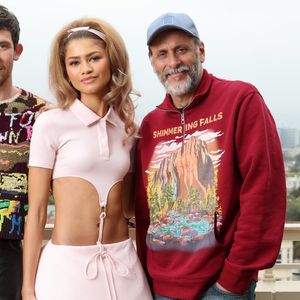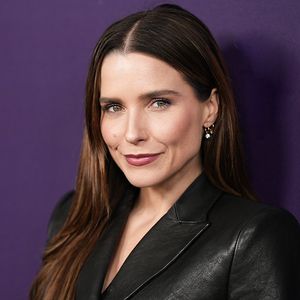In early June, a
few days after the California state assembly came up
four votes shy of passing a bill to make the state's
marriage laws gender-neutral, National Gay and Lesbian
Task Force executive director Matt Foreman is
typically blunt.
"We
haven't made it anywhere," he says.
"There is work to be done everywhere. I think
it's the Task Force's role of the movement to
push the envelope and to not be afraid to speak the
truth even when it's unpleasant."
Even to
themselves. The gay civil rights and advocacy organization
had to watch with frustration and dismay as 11 states
passed amendments banning recognition of same-sex
marriage in November 2004.
More than a dozen
additional states are expected to consider similar
amendments in 2006.
"We are in
terrible trouble for 2006. November 7, 2006, is going to be
a crummy day," predicts Dave Fleischer, NGLTF
director of organizing and training. "The
question is, How crummy? Worst day? Or in some places will
we be starting to turn this issue around? It's an
unprecedented problem to solve."
But NGLTF has
learned some vital lessons moving forward--taking a
play from the conservative Republican Party machine.
It is working to
build on some of the individual state infrastructures
that were developed on the grassroots level during the
losing campaigns, many of which barely had the time to
organize and were woefully overmatched in their
fights.
"You can
look at Ohio. As a result of the election in 2004, activists
across the state have come together and are putting together
a new statewide organization in a well-thought and
energetic way," Foreman says. "Activists
in Michigan are having meetings across the state to come
up with a statewide plan for building their movement. In
Oregon you see renewed, positive energy."
Roey Thorpe,
executive director of Basic Rights Oregon, is among those
who are finding that in addition to building an
infrastructure, activists are able to pinpoint
gay-friendly politicians and potential donors.
NGLTF has
"given all this new energy to supporting state work
at exactly a time when it is most needed,"
Thorpe says. "Most of us recognize the best
we'll do on the federal level for the next few years
is to fight bad legislation and hopefully defeat bad
legislation and that the positive gains are going to
be made at the state level."
But not everyone
is a fan of the group's work. Veteran Democratic
political consultant Ian James says NGLTF was ineffective in
trying to help Ohio gays fight that state's
antimarriage measure, which qualified for the ballot
less than 60 days before the election. He feels that
activists needed to argue that the wording of the amendment
would threaten the rights of unmarried straight
couples who live together as well as the rights of
gays and lesbians.
"This was
the perfect place to, frankly, pour it on," says
James, who was the political director of Ohioans
Protecting the Constitution. "The religious
right spread out their forces and had an easy message to
sell: The gay community is trying to redefine
marriage. We wanted to connect with people. When your
time frame is so short and you've got 72% of
voters saying we don't support same-gender marriage,
they come in and say, 'Even if we lose, we are
advancing the message.' Bullshit."
Ronald Hunt, the
openly gay chair of the political science department at
Ohio University in Athens, watched the Ohio election closely
and came away feeling that NGLTF and other major gay
rights groups not only have to find a way to stop the
state amendments from passing but in doing so must
focus "on changing people's impression on gays
and lesbians."
"This is a
real foundational issue where we are on the
defensive," Hunt says. "The issue is,
How can you construct a political program where we can
regain the offensive? I think a lot of grassroots activity
has to take place before you are going to see any kind
of progress on the issue."
While Foreman
vows that NGLTF will "be more visceral in
approach" when it comes to its message, he
believes the message must remain firmly about gays and
lesbians. "We're not going to make any
movement in this fight until we make it a truly moral
issue," he says. "Basic fairness and moral
values require that straight people start taking a stand for
us with the same force and energy as they would if it
was another minority under attack."
Foreman, who has
headed the group since April 2003, has been known to be
outspoken and sometimes brash during a 25-year career that
had previously been spent mostly in high-profile posts
in New York City, where he lives with his partner of
14 years, Francisco De Leon.
For five years he
was executive director of the Empire State Pride Agenda
in New York, the largest statewide lesbian and gay political
advocacy and civil rights organization in the country,
the driving force behind a 2003 statewide law banning
discrimination on the basis of sexual orientation.
Foreman also served as executive director of the New York
City Gay and Lesbian Anti-Violence Project from the
early to mid 1990s. Last year he resigned from the New
York City Commission on Human Rights to protest Mayor
Michael Bloomberg's decision to go to court to
prevent the city's Equal Benefits Law from
going into effect.
Foreman also
minced no words in May when he called on embattled Spokane,
Wash., mayor Jim West, a closeted gay man, to resign his
office. West, who had built his career on conservative
stands, including vocal support for antigay laws, is
accused of offering City Hall jobs to young men he met
online. West, who has admitted to secret sexual liaisons
with other men, also faces accusations that he
molested two young boys in the 1970s.
Foreman, calling
West's alleged behavior "predatory and
appalling," said in a press release,
"This man, whether he's straight, bisexual, or
gay, deserves nothing but scorn. He needs to resign
immediately."
Born in Idaho,
Foreman is the son of a miner and grew up in various
states across the country, including Montana, Wyoming, and
West Virginia. "I came out in West Virginia in
the 1970s. I'm always aware of how difficult it
still is for some people across this country," he
says. "I really try never to allow the
experience and privilege of living in cities like New
York, Los Angeles, and San Francisco. I always try to
tell people who live in cities not to forget where they came
from and the gay people who are still there."
He adds,
"We really try and embrace the entire community, not
just the people who live in homes with white picket
fences or who aspire to that. Drag queens, leather
people, motorcycle dykes. They are embraced. We
embrace them all."
Founded 32 years
ago to eliminate prejudice, violence, and injustice
against gay, lesbian, bisexual, and transgender people,
NGLTF works to build grassroots political power by
training state and local activists and leaders and
strengthening the infrastructure of state and local
groups. It also battles discrimination, harassment, and
sodomy laws and fights for AIDS funding. During
Foreman's tenure, the once-struggling
organization has stabilized. The size of the board of
directors has more than doubled, the staff has grown
by one third, and a new department has been added to
focus on federal affairs. NGLTF currently claims about
20,000 members. Its 50 full-time employees work out of four
locations: the organization's headquarters in
Washington, D.C., and offices in New York City, Los
Angeles, and Cambridge, Mass.
NGLTF has been
involved in its share of victories on the local level,
including a recent success in Topeka, Kan., where voters
narrowly defeated an antigay ordinance. But the group
acknowledges the uphill state-by-state battle still to
come. "We have to do better in terms of the
scale of the assistance that we are able to offer to other
states," Foreman says. "The challenge
now, the largest challenge, is how to do the
organizing that's needed on the scale that's
required to win a statewide contest."
To that end, the
group will focus on strengthening GLBT political
organizing in five states over several years, beginning with
Maryland and Kentucky, giving organizations in each
state renewable grants of about $100,000 over two
years as well as technical assistance and staff.
Foreman says NGLTF will work intensively with state
organizations to help accelerate their growth. The
other three states for this program have yet to be
selected.
"What
we're hoping to do is focus real resources on one
place this fall where this is on the ballot and test
various messages and strategies," says Foreman.
"Then we'll see which combination of messages
and field work and telephone contacts and direct mail
works the best so we actually have empirical data to
share with donors. A lot of people say we can't
win, so why bother? This will show them.
"The
reality is, our state organizations still need much more
money and community support across the board,"
he continues. "Everywhere our organizations are
really outgunned. The fact that they have done as well
as they have given the resources they have is nothing less
than miraculous."
Adds Fleischer:
"We will look for the first opportunity where a state
is threatened and willing to prepare far enough in
advance. Every campaign we are engaged in, we are
going into it with a self-critical eye as to what will
allow us to be more useful to the community with each coming
election."
Former NGLTF
executive director Virginia Apuzzo says some perspective is
needed when facing today's daunting political
challenges. She was one of the early members of the
organization when it was launched in New York City and
remembers when activists were focused on having
homosexuality declassified as a mental disorder by the
American Psychiatric Association.
"We were
just trying to survive," she says. "The young
people don't realize that while you're
living your life, you're making history. Many
of us, we didn't see home run, we saw trying to get
on base."
















































































